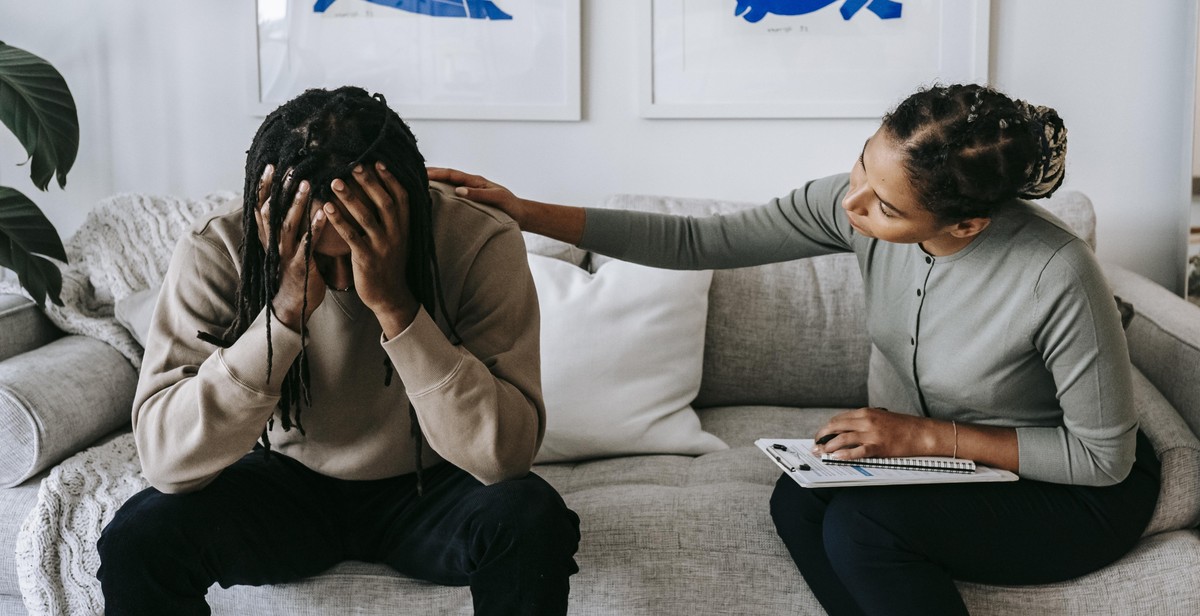How to Deal with Relationship Anxiety
Relationship anxiety is a common condition that affects many people. It can be triggered by a variety of factors, including past trauma, fear of abandonment, and attachment style. If left unchecked, relationship anxiety can cause significant distress and damage to the relationship. However, there are steps you can take to manage and overcome this condition.
Recognizing Relationship Anxiety
The first step in dealing with relationship anxiety is recognizing that you have it. Some common symptoms of relationship anxiety include:
- Constant worry and fear about the relationship
- Difficulty trusting your partner
- Feeling insecure or inadequate
- Jealousy and possessiveness
- Fear of abandonment or rejection
If you are experiencing any of these symptoms, it is important to address them before they escalate and cause further damage to your relationship.
Understanding the Root Cause
Understanding the root cause of your relationship anxiety is crucial to overcoming it. This may require some self-reflection and introspection. Some common causes of relationship anxiety include:
- Past trauma or abuse
- Unresolved emotional issues
- Fear of rejection or abandonment
- Attachment style
Once you understand the root cause of your relationship anxiety, you can begin to work on addressing it.
Managing Relationship Anxiety
There are several strategies you can use to manage relationship anxiety, including:
- Communication with your partner
- Self-care and stress management
- Practicing mindfulness and meditation
- Challenging negative thoughts and beliefs
- Seeking professional help
By taking these steps, you can begin to overcome your relationship anxiety and build a healthier, more fulfilling relationship.

Understanding Relationship Anxiety
Relationship anxiety is a common issue that affects many people in relationships. It is a feeling of fear, worry, and unease that arises in a relationship. It can be caused by a variety of factors, including past experiences, attachment styles, and communication issues. Relationship anxiety can manifest in different ways and can be very distressing for both partners.
What is Relationship Anxiety?
Relationship anxiety is a type of anxiety that occurs in a romantic relationship. It can be characterized by a constant fear of being abandoned, rejected, or hurt by a partner. It can also manifest as a fear of intimacy or a fear of commitment. Relationship anxiety can stem from a variety of sources, including past experiences, attachment styles, and communication issues.
Causes of Relationship Anxiety
There are several causes of relationship anxiety, including:
- Past experiences: Past experiences, such as childhood trauma, past relationships, or family issues, can contribute to relationship anxiety. If someone has been hurt or abandoned in the past, they may be more likely to experience relationship anxiety in future relationships.
- Attachment styles: Attachment styles refer to the way individuals form and maintain relationships. People with anxious attachment styles may be more prone to relationship anxiety, as they may worry about being rejected or abandoned by their partner.
- Communication issues: Communication is a key component of any healthy relationship. If communication is lacking or ineffective, it can lead to misunderstandings, mistrust, and anxiety.
- Life changes: Major life changes, such as moving, starting a new job, or having a child, can also contribute to relationship anxiety. These changes can create stress and uncertainty, which can exacerbate existing anxiety issues.
Symptoms of Relationship Anxiety
Relationship anxiety can manifest in different ways, and symptoms can vary from person to person. Some common symptoms of relationship anxiety include:
- Constant worry: People with relationship anxiety may constantly worry about their partner leaving them or cheating on them.
- Jealousy: Relationship anxiety can also lead to feelings of jealousy, even in situations where there is no reason to be jealous.
- Need for reassurance: People with relationship anxiety may need constant reassurance from their partner to feel secure in the relationship.
- Avoidance: Some people with relationship anxiety may avoid intimacy or commitment altogether to avoid the potential for rejection or hurt.
- Physical symptoms: Relationship anxiety can also manifest in physical symptoms, such as headaches, stomachaches, and difficulty sleeping.
It is important to note that relationship anxiety is a common issue and is not a reflection of someone’s worth or value. It is a treatable condition, and with the right support and resources, people can learn to manage their anxiety and build healthier, happier relationships.

Tips to Deal with Relationship Anxiety
Relationship anxiety is a common issue that affects many individuals in a relationship. It can cause stress, worry, and fear, and can even lead to the breakdown of a relationship. Here are some tips to help you deal with relationship anxiety:
Communicate with Your Partner
Communication is key in any relationship. Talk to your partner about your feelings and fears. Let them know what triggers your anxiety and work together to find solutions. Being open and honest with your partner can help to alleviate anxiety and build trust.
Identify Your Triggers
Identify the situations or thoughts that trigger your anxiety. Once you are aware of your triggers, you can start to manage them better. For example, if you feel anxious when your partner goes out with friends, try to understand why and find ways to cope.
Practice Self-Care
Self-care is important for managing anxiety. Take time for yourself to do things that make you feel good, such as exercise, meditation, or reading. Make sure to prioritize self-care in your daily routine.
Challenge Negative Thoughts
Negative thoughts can fuel anxiety. Challenge these thoughts by asking yourself if they are rational and realistic. Replace negative thoughts with positive ones, and focus on the good aspects of your relationship.
Seek Professional Help
If your anxiety is severe or affecting your daily life, seek professional help. A therapist can help you develop coping strategies and work through underlying issues that may be contributing to your anxiety.
| Communicate with Your Partner | Identify Your Triggers | Practice Self-Care | Challenge Negative Thoughts | Seek Professional Help |
| Being open and honest with your partner can help to alleviate anxiety and build trust. | Identify the situations or thoughts that trigger your anxiety. Once you are aware of your triggers, you can start to manage them better. | Self-care is important for managing anxiety. Take time for yourself to do things that make you feel good. | Negative thoughts can fuel anxiety. Challenge these thoughts by asking yourself if they are rational and realistic. | If your anxiety is severe or affecting your daily life, seek professional help. |
